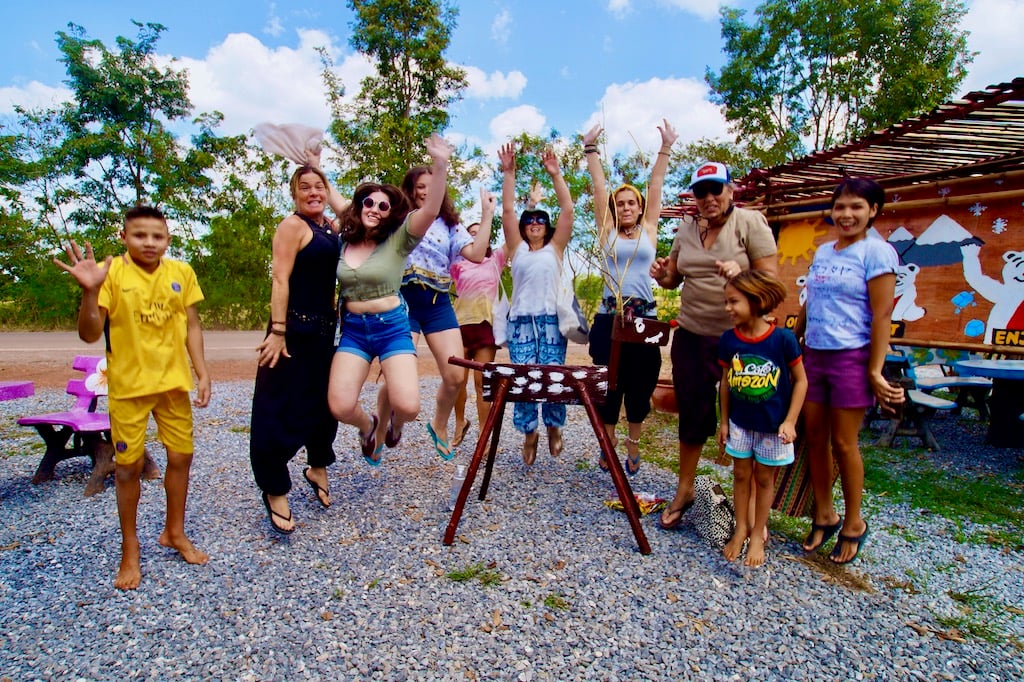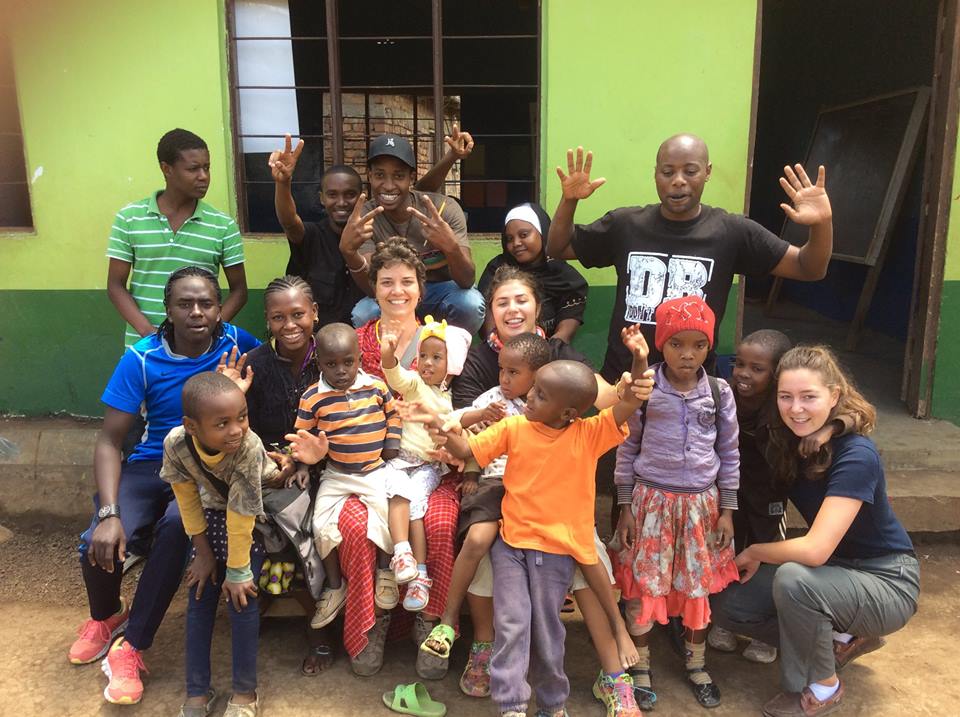Volunteering abroad can be an incredibly rewarding experience, allowing you to make a positive impact in a different part of the world while immersing yourself in a new culture. It’s an opportunity to step out of your comfort zone, meet like-minded individuals, and broaden your perspective on global issues. But before you embark on this exciting journey, there are several important steps you need to take to ensure a smooth and successful trip.
In this article, we’ll guide you through the process of getting ready for your volunteer abroad trip. From researching the right program to obtaining the necessary documents, and from planning and packing to booking travel and accommodation, we’ll cover everything you need to know to make the most of your experience. So let’s get started on this adventure together!

Researching the Volunteer Program
Before embarking on your volunteer trip abroad, it is crucial to conduct thorough research on the volunteer program you wish to join. By doing so, you can ensure that you make a positive impact, have a meaningful experience, and choose a program that aligns with your goals and values. Here are some important factors to consider when researching a volunteer program:
Choosing a Reputable Organization
- Look for organizations that have a solid reputation and positive feedback from past volunteers. You can read reviews and testimonials online, as well as seek recommendations from friends or fellow travelers.
- Check if the organization is registered and accredited. This ensures that they operate legally and adhere to ethical guidelines.
- Find out if the organization has a clear mission statement and goals that align with your own values and interests. This will ensure a more fulfilling experience.
Understanding the Project Requirements
- Determine the specific skills and qualifications required for the volunteer project. Some programs may require previous experience, language proficiency, or specific certifications.
- Consider the duration of the program and whether it fits your schedule. Some programs may have a minimum commitment time, so make sure you can fully commit to the project before applying.
Considering the Location
- Research the country and local community where the volunteer program is based. Familiarize yourself with the culture, customs, and traditions of the destination.
- Consider the safety and security of the location. Check travel advisories and consult with experienced travelers or locals to ensure that the destination is safe for volunteers.
- Evaluate the infrastructure and support systems in place. Is there access to basic amenities, healthcare facilities, and transportation? These factors can greatly impact your overall experience.
By taking the time to research and choose a reputable volunteer program, you can ensure that you have a rewarding and impactful experience abroad. Remember, volunteering is not only about giving back but also about personal growth and cultural exchange.
Obtaining the Necessary Documents
One of the most essential aspects of preparing for your volunteer trip abroad is ensuring that you have all the necessary documents in order. These documents will not only allow you to enter the country you are visiting but also provide you with important protection and peace of mind during your trip. Here’s a breakdown of the important documents you need to obtain before your journey:
Valid Passport and Visa
- Passport: Ensure that your passport is valid for at least six months beyond your planned departure date. If your passport is expired or close to expiry, make sure to renew it before your trip. Allow for ample time in case there are any delays in the renewal process.
- Visa: Research the visa requirements of the country you plan to volunteer in. Some countries require visas for specific durations of stay, while others may allow visa-free entry. Check the embassy or consulate website of your destination country to determine if a visa is required and what kind of visa you will need.

Important Travel Insurance
Travel insurance is a vital aspect of volunteering abroad, as it provides coverage for unexpected events and emergencies. Here are a few points to consider when obtaining travel insurance:
- Medical Coverage: Ensure that your travel insurance plan includes comprehensive medical coverage in case you need healthcare services during your trip.
- Emergency Evacuation: Look for a policy that covers emergency medical evacuation. This coverage will be helpful if you need to be transported to a better-equipped medical facility in the event of a serious illness or injury.
- Trip Cancellation and Interruption: Check if your insurance plan covers trip cancellation and interruption. This will financially protect you in case unforeseen circumstances require you to cancel or cut short your volunteer trip.
- Personal Liability: It’s also a good idea to have personal liability coverage in case you accidentally cause damage or injury to someone during your volunteering activities.
Vaccinations and Medical Certificates
Before traveling to your destination, it’s crucial to research the required vaccinations and obtain the necessary medical certificates. Here are some important steps to consider:
- Research Vaccination Requirements: Check the recommended and required vaccinations for your destination country. Visit the website of the Centers for Disease Control and Prevention (CDC) or consult with a travel medicine specialist to ensure you receive the appropriate vaccines.
- Medical Certificates: Some countries may require certain medical certificates, such as proof of yellow fever vaccination. Make sure to obtain any necessary medical certificates well in advance of your journey to avoid any last-minute hassles.
By obtaining the necessary documents, you’ll be prepared to navigate the international travel process smoothly and confidently. Remember to check the specific requirements for your destination country and allow sufficient time for the application and processing of visas and passports. Additionally, don’t forget to carry photocopies or digital copies of your important documents to keep as backups in case of loss or theft. With your documents in order, you can focus on making a difference through your volunteer work abroad!
Planning and Packing
Planning and packing are crucial steps in preparing for your volunteer trip abroad. Here are some important considerations to keep in mind to ensure that you have everything you need for a successful and comfortable experience.
Creating a Detailed Itinerary
Before you embark on your volunteer adventure, it’s essential to create a detailed itinerary. This will help you stay organized and ensure that you make the most of your time abroad. Here are a few tips to help you with your itinerary planning:
- Research local attractions and activities: Take the time to research the destination you’ll be volunteering in. Look for local attractions, cultural events, and recreational activities that you might want to explore during your free time.
- Consider transportation options: Take into account how you’ll be getting around during your stay. Check if there are public transportation options available or if you’ll need to rent a car or hire a driver.
- Allocate time for self-care: While volunteering can be rewarding, it can also be physically and emotionally demanding. Make sure to schedule downtime for yourself to rest, relax, and recharge.

Packing Essentials and Clothing
When it comes to packing for your volunteer trip, it’s important to strike a balance between bringing the essentials and avoiding overpacking. Here are a few items that you should include in your luggage:
- Comfortable clothing: Pack lightweight, breathable, and versatile clothing that suits the climate of your destination. Consider bringing layers that you can easily mix and match.
- Appropriate footwear: Depending on your volunteer project, you might need sturdy, closed-toe shoes or boots. Also, don’t forget to pack a pair of comfortable walking shoes for exploring the area during your free time.
- Toiletries and personal items: While some toiletries can be easily purchased at your destination, it’s a good idea to bring travel-sized necessities such as toothpaste, soap, and sunscreen.
- First aid kit: Make sure to pack a basic first aid kit that includes items like bandages, antiseptic ointment, pain relievers, and any prescription medications you’ll need while abroad.
- Power adapters and chargers: Ensure that you have the right power adapters for the country you’re visiting, as well as chargers for your electronic devices.
Organizing Travel Accessories
Travel accessories can greatly simplify your journey and help you stay organized. Here are a few items that you should consider packing:
- Travel documents organizer: Keep all your important travel documents like passports, visas, boarding passes, and insurance information in one secure place. This will help you keep track of everything and prevent any last-minute panics.
- Portable charger: Having a portable charger can be a lifesaver, especially when you’re on the go and don’t have access to power outlets.
- Travel pillow and blanket: If you have a long flight or bus ride ahead of you, a travel pillow and blanket can make all the difference in ensuring a comfortable journey.
- Reusable water bottle: Staying hydrated is crucial, especially in unfamiliar environments. Travel with a reusable water bottle that you can fill up throughout the day.
- Packing cubes or compression bags: These handy accessories can help maximize space in your luggage and keep everything organized.
Remember, it’s important to check the baggage restrictions and guidelines of your airline before packing. They may have specific weight limits or prohibited items that you need to be aware of.
So, as you start preparing for your volunteer trip, don’t forget to plan your itinerary, pack your essentials, and organize your travel accessories. This will help ensure that you have a smooth and enjoyable experience while making a positive impact abroad.
Booking Travel and Accommodation
When preparing for a volunteering trip abroad, one of the most important aspects to consider is booking your travel and accommodation. This is a crucial step that ensures you have a safe and comfortable journey to your destination. Here are some tips to help you with this process:
Finding Affordable Flights
- Start your search early: The earlier you start looking for flights, the better chance you have of finding affordable options. Prices tend to increase as the departure date gets closer.
- Compare prices: Use different travel websites and platforms to compare flight prices. Consider using search engines that aggregate multiple airlines to give you the best deals.
- Be flexible with your travel dates: Sometimes, adjusting your departure or return dates by a day or two can result in significant savings.
- Consider layovers: Direct flights are often more expensive than flights with layovers. If you’re comfortable with a layover, it can help you save money on your flight.
- Sign up for alerts: Set up price alerts for your desired destination. This way, you’ll be notified when there are any changes in flight prices, allowing you to snag a great deal.
Reserving Accommodation
- Research different options: Look into various types of accommodation such as hotels, hostels, guesthouses, or even homestays. Each has its own advantages and price range.
- Read reviews: Before making a reservation, read reviews from previous guests to get an idea of the quality and service provided by the accommodation.
- Consider location: Think about the proximity of your accommodation to your volunteer program. It’s often best to stay somewhere that is easy to reach and close to public transportation.
- Check cancellation policies: Make sure to understand the cancellation policies of the accommodations you’re considering. Flexibility can be important in case unexpected changes occur in your travel plans.
- Contact the accommodation directly: If you have any special requests or specific questions, don’t hesitate to contact the accommodation directly. They might be able to offer you a better deal or provide additional information.
Transportation Options
- Public transportation: Research the public transportation system in the area where you’ll be volunteering. Familiarize yourself with bus or train routes and schedules so that you can easily navigate to your volunteer program and explore the surrounding area.
- Car rental: Depending on the location and your preferences, renting a car might be a convenient option. It can give you more freedom and flexibility to travel to different places during your free time.
- Airport transfers: Find out if your accommodation or volunteer program offers airport transfers. This can be a convenient and stress-free way to get to your destination, especially if you’re arriving late at night or in an unfamiliar place.
Remember, booking your travel and accommodation in advance allows you to have peace of mind and focus on the volunteering experience. Plus, it can often save you money! Take the time to research and compare options to find the best deals that suit your needs and budget.
“Traveling is not just about reaching your destination, it’s about the journey and the experiences you encounter along the way.”
Financial Considerations
When preparing for a volunteer trip abroad, it’s important to consider the financial aspects of your journey. Here are some key factors to keep in mind to ensure that you are financially prepared:
Setting a Budget
Before embarking on your volunteer adventure, it’s essential to have a clear understanding of your financial situation and to set a budget. This will help you determine how much money you will need for your trip and what expenses you need to account for. Consider the following when setting your budget:
- Program fees: Research and understand the costs associated with the volunteer program you have chosen. This may include fees for accommodation, meals, transportation, and administration.
- Travel expenses: Take into account the cost of flights, visas, travel insurance, and any other transportation costs you may incur during your trip.
- Living expenses: Consider the cost of daily living, such as meals, transportation within the country, and any additional activities or sightseeing you plan to do during your free time.
- Emergency funds: It’s always a good idea to set aside some money for unexpected situations or emergencies that may arise during your trip.
Currency Exchange
When traveling to a foreign country, it’s important to familiarize yourself with the local currency and understand the best ways to handle your money. Here are some tips for dealing with currency exchange:
- Research exchange rates: Keep an eye on the exchange rates of the country you will be visiting. This will help you understand the value of your currency when converting it to the local currency.
- Use reputable exchange services: Avoid exchanging money at airports or tourist areas where you may encounter unfavorable exchange rates. Instead, use reputable banks or exchange offices that offer fair rates and low fees.
- Consider using a travel card: Travel cards, such as prepaid debit cards, can be a convenient and secure way to carry and access funds while abroad. They often offer competitive exchange rates and can be easily reloaded if needed.
Accessing Money Abroad
Having easy access to your funds while volunteering abroad is crucial. Here are some tips for managing your money:
- Notify your bank: Before you leave, inform your bank about your travel plans and the countries you will be visiting. This will prevent your card from being blocked due to suspicious activity.
- Carry multiple forms of payment: It’s advisable to have a mix of cash, debit or credit cards, and a travel card. This will provide you with options in case one form of payment is not accepted or if you encounter any issues.
- Keep emergency cash: Stash some emergency cash in a safe place, separate from your regular wallet or purse. This will come in handy in case you lose your cards or if ATMs are not easily accessible in certain areas.
Remember, it’s always a good idea to have a backup plan in case of unforeseen financial circumstances. Stay vigilant in managing your finances so that you can fully enjoy your volunteer experience without any unnecessary stress.
“Travel makes one modest. You see what a tiny place you occupy in the world.” – Gustave Flaubert
Health and Safety Precautions
When volunteering abroad, the health and safety of both yourself and the community you will be working in should be a top priority. Taking the necessary precautions can help ensure a safe and fulfilling experience. Here are some important considerations to keep in mind:
Knowing Emergency Contacts
- Before you embark on your volunteering trip, make sure to research and note down emergency contact numbers for both your home country and the country you will be volunteering in. This includes the local emergency services, the nearest hospital, and the contact information for the local embassy or consulate.
Obtaining Travel Insurance
- It is essential to have comprehensive travel insurance that covers not only medical expenses but also any potential emergencies or unforeseen circumstances. Choose a plan that is suited to the activities you will be participating in and the length of your trip.
Staying Safe and Healthy
- Take the necessary precautions to protect your health and well-being during your volunteering experience. Here are some tips:
- Medical check-up: Visit your healthcare provider before your trip to ensure you are in good health and discuss any specific vaccinations or medications you may need.
- Hygiene practices: Follow proper hygiene practices, such as washing your hands regularly with soap and using hand sanitizer when soap is not available.
- Food and water safety: Be cautious when consuming food and water in unfamiliar places. Stick to bottled water and avoid street food if you have a sensitive stomach. It’s also a good idea to avoid ice cubes and raw or undercooked food.
- Sun protection: Protect yourself from the sun by wearing sunscreen, a hat, and sunglasses. Remember to stay hydrated and seek shade when necessary.
- Personal safety: Familiarize yourself with local laws and customs to avoid inadvertently engaging in behavior that may be disrespectful or illegal. Stay alert and be cautious when traveling alone, especially at night.
“Remember, prevention is better than cure. Practicing good hygiene and taking necessary precautions can go a long way in ensuring a healthy and safe volunteering experience.”
Cultural Sensitivity and Language Learning
When volunteering abroad, it’s essential to approach the local culture with respect and sensitivity. Understanding and appreciating the cultural norms and customs of your host country can greatly enhance your volunteer experience and ensure positive interactions with the local community. Additionally, learning a few basic phrases in the local language can go a long way in bridging the communication gap and forming meaningful connections. Here are some tips on how to navigate cultural sensitivity and language learning while volunteering abroad:
Respecting Local Customs
- Do your research: Before you depart for your volunteer program, take the time to learn about the local customs and traditions. Understanding what is considered polite and respectful in the host country will help you avoid inadvertently offending anyone.
- Dress appropriately: Clothing can be a crucial aspect of cultural sensitivity. Some cultures have conservative dress codes, while others may have specific traditional attire. Make sure to pack clothing that respects local customs and adhere to any guidelines provided by your volunteer organization.
- Observe and follow local etiquette: Pay attention to how locals behave, and try to emulate their behavior. For example, some cultures place a strong emphasis on greetings and handshakes, while others might prefer a more reserved approach. By observing and adopting these customs, you show respect for the local culture.
Learning Basic Phrases
- Start with greetings: Learning basic greetings in the local language can help you break the ice and show respect to the locals. A simple “hello,” “thank you,” and “goodbye” can go a long way in building rapport with the people you encounter during your volunteer work.
- Practice common phrases: In addition to greetings, learning a few common phrases related to directions, ordering food, and asking for help can be incredibly useful during your time abroad. Consider investing in a phrasebook or using language learning apps to practice these phrases before your trip.
- Engage in language exchange: If you have the opportunity, consider participating in language exchange programs or language classes before your volunteer program. Engaging with native speakers can help improve your language skills and deepen your understanding of the local culture.
Understanding Cultural Norms
- Be open-minded: Keep in mind that cultural norms can vary significantly from your own country. Embrace the differences and approach them with an open mind. Avoid judgment or criticism of practices that may seem unfamiliar or strange to you.
- Ask for guidance: If you’re unsure about certain cultural norms or customs, don’t hesitate to ask your program coordinator or local contacts for guidance. They can provide valuable insights and help steer you in the right direction.
- Seek cultural immersion opportunities: Take advantage of cultural immersion opportunities during your volunteer program. Participate in local festivities, visit historical sites, and try traditional food. Immersing yourself in the local culture will not only deepen your understanding but also enrich your overall experience.
Remember, being culturally sensitive and open to learning is crucial when volunteering abroad. Your willingness to embrace and respect the local culture will show the community that you genuinely care about making a positive impact. By navigating language barriers and demonstrating cultural sensitivity, you’ll be well on your way to creating meaningful connections and making a lasting difference through your volunteer work.
Preparing for Challenges
While volunteering abroad can be an incredibly rewarding experience, it’s important to be prepared for the challenges that may arise during your trip. From adapting to new environments to handling homesickness, here are some tips to help you navigate the potential hurdles you may encounter:
Adapting to New Environments
Volunteering abroad often means immersing yourself in a different culture and environment. It’s natural to feel a bit overwhelmed or out of your comfort zone, but with some preparation, you can adapt more easily:
- Research the local customs and traditions: Understanding the cultural norms and etiquette will help you integrate into the local community and avoid unintentional offense.
- Be open-minded: Embrace new experiences and be willing to step outside your comfort zone. Remember, this is an opportunity for personal growth and learning.
- Practice flexibility: Things may not always go as planned. Embrace the unexpected and remain adaptable to changes in your schedule or circumstances.
Dealing with Homesickness
Being away from home for an extended period can sometimes make you feel homesick. Here are some strategies to help you cope with those feelings:
- Stay connected: Make an effort to stay in touch with your loved ones back home through phone calls, video chats, or even handwritten letters. Sharing your experiences and feelings can help alleviate homesickness.
- Build a support system: Connect with fellow volunteers or locals who can provide support and companionship. They may be experiencing similar feelings and can offer reassurance and advice.
- Stay engaged: Keep yourself busy and engaged in the volunteer work and local community. By focusing on your purpose and making a difference, you may find that homesickness takes a backseat.
Handling Unforeseen Situations
While we hope for a smooth journey, it’s important to be prepared for unforeseen situations that may arise during your volunteering trip. Here are some tips to help you handle unexpected challenges:
- Stay informed: Research the local emergency contact numbers and familiarize yourself with the nearest medical facilities, embassy, or consulate. Keep a list of important contacts handy in case of emergencies.
- Take precautions: Follow any safety guidelines provided by your volunteer organization and practice common-sense precautions such as being aware of your surroundings and avoiding risky areas.
- Stay calm and resourceful: In the face of challenges, try to remain calm and think critically. Remember that help and support are available, whether it’s from your fellow volunteers, local authorities, or your volunteer organization.
By mentally preparing for the challenges that may arise during your volunteering trip, you can approach them with a positive mindset and effectively overcome them. Remember, challenges are a part of any journey, and they often lead to personal growth and incredible experiences. Embrace the adventure, and make the most of your volunteering experience abroad!
“Success is not final, failure is not fatal: It is the courage to continue that counts.” – Winston Churchill
Conclusion
Volunteering abroad can be a truly transformative experience. It allows you to explore new cultures, make a positive impact, and create lasting memories. By taking the time to prepare adequately for your trip, you can ensure a smooth and rewarding experience. Remember to:
- Conduct thorough research to find a reputable volunteer program that aligns with your interests and goals.
- Gather all the necessary documents, including a valid passport, visa, and travel insurance.
- Plan and pack wisely, considering your itinerary, essential items, and travel accessories.
- Book your travel and accommodation in advance, keeping affordability and convenience in mind.
- Take financial considerations into account, such as setting a budget and arranging currency exchange.
- Prioritize health and safety by knowing emergency contacts, obtaining travel insurance, and maintaining good health practices.
- Show cultural sensitivity and make an effort to learn basic phrases to connect with locals.
- Prepare mentally for challenges and be ready to adapt to new environments and handle unforeseen situations.
A Broader View Volunteers, a leading international volunteer organization, offers exciting opportunities for volunteering abroad. If you’re ready to embark on a life-changing journey while making a difference, visit their website at abroaderview.org for more information and to explore their volunteer programs across Africa, Asia, Central America, and South America. Remember, your adventure awaits, and your impact can be profound!
Frequently Asked Questions
- What documents do I need before volunteering abroad?Before volunteering abroad, you typically need a valid passport, visa (if required by the destination country), and any necessary permits or clearances. It is advisable to check the embassy or consulate website of your destination country for specific requirements.
- What should I pack when volunteering abroad?When volunteering abroad, pack essentials such as comfortable clothing, toiletries, a first aid kit, reusable water bottle, necessary medications, appropriate shoes, sunscreen, insect repellent, and any personal items you may need during your stay. It is also recommended to pack a power adapter and a copy of essential documents.
- Do I need travel insurance when volunteering abroad?Yes, it is highly recommended to have travel insurance when volunteering abroad. Travel insurance can provide coverage for medical emergencies, trip cancellations, lost baggage, and other unforeseen events. Make sure to choose a policy that suits your needs and check if volunteer work is covered.
- How early should I renew my passport before volunteering abroad?It is advisable to renew your passport at least six months before its expiration date when volunteering abroad. Many countries require that your passport be valid for at least six months beyond your intended stay. Processing times for passport renewals vary, so plan ahead to avoid any last-minute issues.
- When should I book my airline ticket for volunteering abroad?It is recommended to book your airline ticket well in advance when volunteering abroad, preferably a few months before your planned departure. This allows you to get better deals and ensure availability. It’s advisable to compare prices, consider flight routes, and check for any travel restrictions or requirements due to COVID-19.



